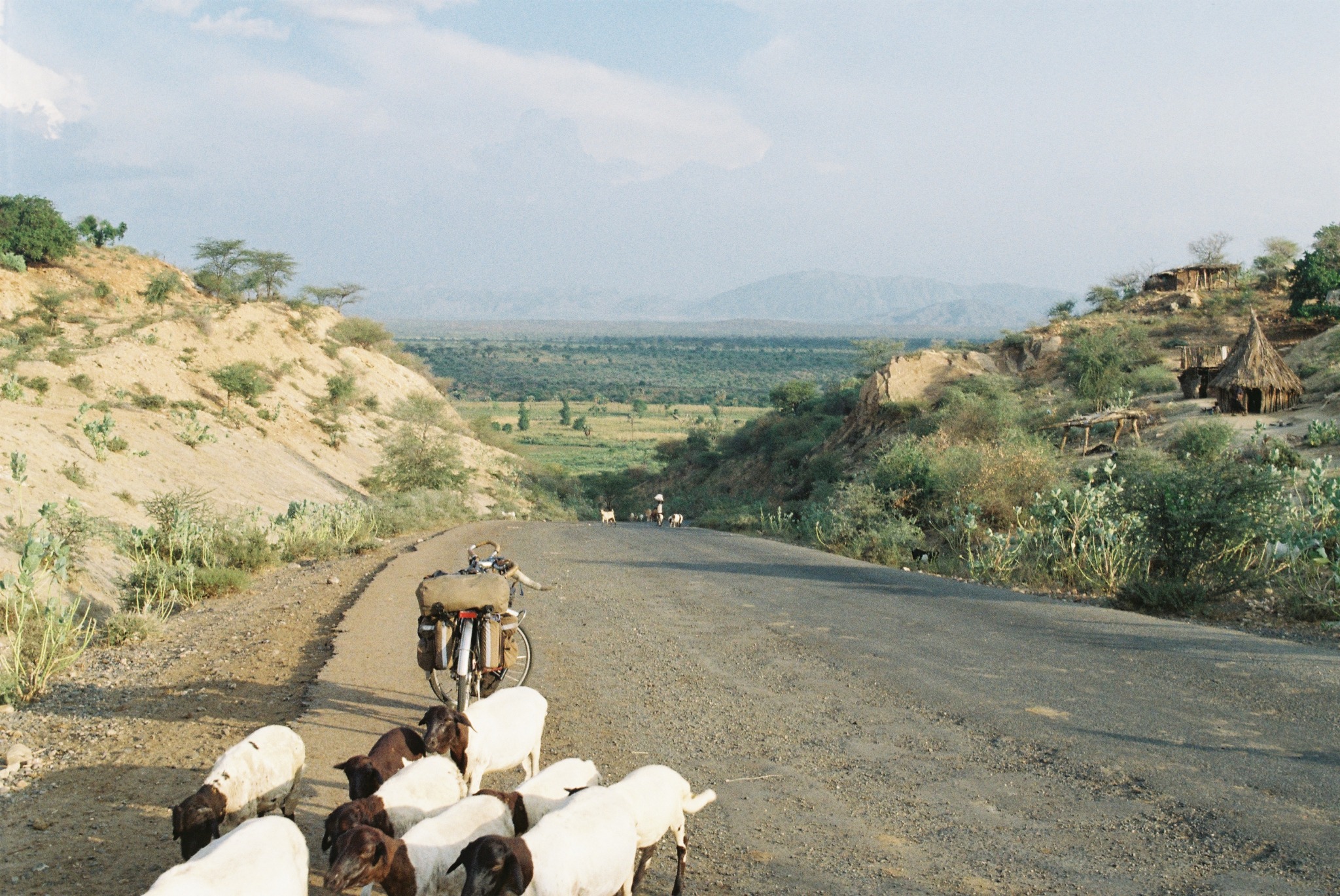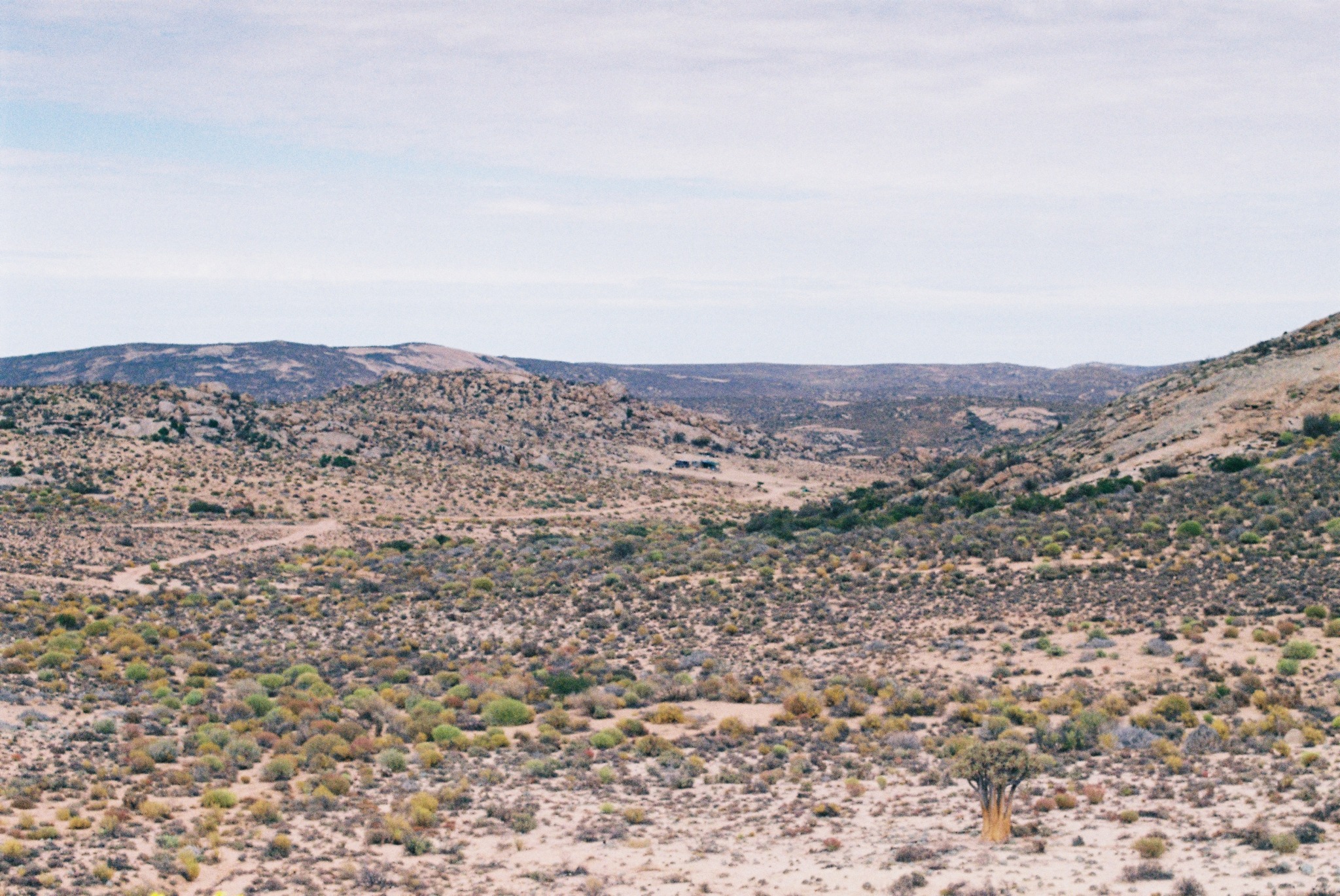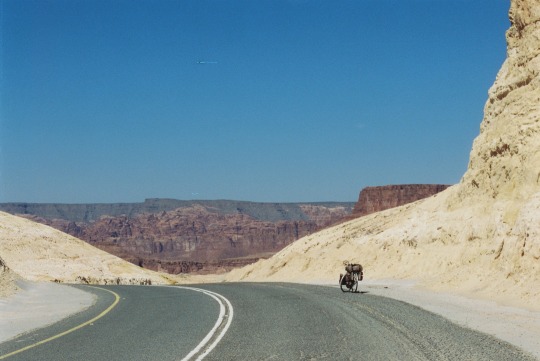Ethiopia was one of the hardest places I've been. Anytime. But now on a bicycle. You feel vulnerable already, and the aggression you face only makes things that much more difficult. Some say that despite all that, it's still their top country. To that I say, "Are you out of your ever-loving mind?!" As interesting as it was, nothing redeemed it from taking last place.
Enjoyment
Profile
981 mi (1,580 km)⭧ 56.8k ft⭨ 54.1k ft
Difficulty
The Route
Crosses the Omo river border with Kenya, through the flatlands of the Omo valley to hills. Drops towards Konso and is flat around the lakes making a gradual climb to Addis Ababa. West to Harar follows through mountains of intense rising and falling, and then drops from Harar to Dire Dawa.
What is Ethiopia Like?
The Scenery
Ethiopia's strikingly different mindset brings up strikingly different solutions. Houses employed two-layer thatch roofs topped with little caps, some painted murals on the sides, and others were entirely woven! What makes it so interesting is that there are still villages that do everything without modern materials like concrete and tin panels. Terrace farming is on a level with East Asia and can be overwhelmingly beautiful, but with a more earthy feel.
The Roads
Roads in Ethiopia were noticeably better than those in Kenya. There were some sections like from Alaba Kulite to Shashamane that were under construction or maybe permanently dirt. Compared to other East African countries, Ethiopia has many paved secondary roads, which means you can explore with a little more ease. Shoulders seemed to come and go, but over-all quality wasn't bad.
Safety
Ethiopia felt like the most dangerous country I visited on my 32 country bike tour. Southwestern Africa had the dangers of wildlife and Central Africa had rude drivers. Ethiopia didn't have much wildlife and truck drivers seemed noticeably more courteous, but it had the most "no-go zones". In Omo Valley, a local advised me not to leave the main road because tribes like the Mursi can be dangerous. In the north, rebel groups were at war with the army. Even the "safe" parts were bad enough. Dudes out in remote areas with automatic rifles mean they could do what they want and possibly get away with it. Someone said the guns are more for show, but given the cutthroat nature of this part of our big blue marble, it's pretty unsettling.
The People
A touring couple ask me, "have you met a nice person here?" and I had to think about it. I could count on one hand the number of helpful people, and everyone else, it seemed, were either trying to swindle, mock, or harass me. You think maybe it's just you, but then start to hear lots of similar stories.
One of the first things you learn about Ethiopians is that they throw rocks at cyclists, but it goes much deeper than that. There are innocent annoyances such as them yelling "faranji" and "you", kids following you uphill, touching your stuff, and other things you get in Central Africa. More aggressive behavior that rarely happened south of the Omo River like rock-throwing and pushing/pulling the bike, became all too common. People will even stand in the road and try to block you as you struggle uphill, grab your leg, try to scare you, or act like they're going to hit you. "Be nice to them and they'll be nice to you" sounds good, but didn't seem to work. I tried waving to initiate the interaction, and they'd wave back, but sometimes would still get rocks thrown at me.
To be fair, adults will sometimes step in and pick up a rock or stick and threaten the kids with it, showing the beauty of rock-throwing getting passed down from generation to generation.
Sure it's easy sitting there in your chair thinking those aren't too bad, but imagine sun up to sun down always having people yelling at you, following you, staring at you, and there being no place of being alone. It builds on an introvert the way moderately uncomfortable shoes will turn your feet raw after several days of hiking.
Wildlife
The population density keeps all but hyenas away, which mainly saw as road kill.
Resources
Water
Since it's just north of the Equator, Ethiopia is technically in winter during December, but it was still pretty hot. Even if you go through a lot, there are shops all along the way. There were only a handful of times I could get water from water stations (bohno) and mostly bought 2L bottles of water for 30 birr ($0.50). This standard price you'll want to learn first because 1) you'll be buying lots of them, and 2) you can use "how much is water?" to figure out if the seller is trying to milk you.
Food
A tangy, fermented crepe called injera comes with a topping like curry eggs, lentils, or meat (this dish is called tibs). Prior to this, I ate at maybe two restaurants in some Central African countries but wasn't all that impressed. Ethiopia's food is a little more palatable. While they do have supermarkets in the largest cities, don't expect to find much more than the basics even in medium-sized cities.
Coffee
You'd think buying a bag of coffee in the country where coffee originated would be pretty easy, but I didn't get a bag for like a week or two after crossing the border. The problem is that shops only sell beans, usually unroasted, that people grind and roast themselves. Getting coffee the drink is the easiest thing in the world. It seems on every other porch is a carafe sitting on coals surrounded by tiny cups, and several plastic stools. The coffee nor its ceremony ever gets old. Smoke from incense on the table and a sprig of an herb in the cup another layer to the already deep, complex flavor profile of the pitch black drink filled to the brim. Rookies will grab the cup and not the saucer and will end up spilling it all over their fingers as they set it back down. The 10 birr ($0.18) price tag always has me stopping.
Bike Shops
I ran out of patches and never found any outside Addis. Even Arba Minch (biggest city coming from Omorate), a really nice local ran around on his motorcycle trying to find some for me. The closest was a bike mechanic with a bunch of dissected bikes. Jinka didn't have any either.
Money
Contrary to the maps, there is in fact an ATM in Omorate and in Turmi (assuming they have bills and power), and a few other towns along the way. They say you can exchange $ for birr for twice the bank rate on the black market. Where does one find a black market? Just ask a shop owner selling liquor (one told me they buy liquor in dollars) if you can pay in dollars at a 1 dollar/100 birr rate. The closer you get to Addis, the higher the exchange rate.
Sections
Entering
Visa on arrival is not possible for crossing at Omorate, and I don’t think anywhere else outside flying in to Addis. An eVisa will take a couple three days to process and is relatively straightforward. If you get a bug-eyed little twerp at the Omorate immigration office, expect to be asked for your support. As always, hold your ground.
Omo Valley to Arba Minch
The Omo Valley is a unique opportunity to see a genuine continuation of humanity’s ancient past, and there are so many varied tribes you probably never feel like you saw everything. As a cyclist, the obvious tribes you can expect to see are the Hamer with red clay in their hair around Omorate and the Banna with white paint on their bodies standing on stilts near Key Afer. The others were either not super iconic or outside of the safe-zone. I was told that the paved A1 and A10 were the only roads I should take because areas beyond aren’t policed. The Mursi tribe that put bowls in their lips are just outside of Jinka, but I was told I couldn't/shouldn't enter Mago National Park on a bicycle. There's really no reason to go to Jinka unless you want to book a tribe tour, but apparently Mursi people come on market days.
The road from Turmi to Konso is simply beautiful in its own way. The terraced fields in the mountains at sundown is worth the constant up-down and maybe even the 20-something following me seeing if he could pelt me with a rock.
Arba Minch to Addis Ababa
Arba Minch was sort of disappointing for someone who was really looking forward to hitting up a supermarket and getting a few luxuries like… I don’t know… something other that beans, rice, and pasta? The city really only has the same little shops you see in rural parts, just times ten.
There wasn’t much to see on the A7 skipping the Lake Awasa and the rastafarian community in Shashamane, but it was nice flat riding where I felt I made good time.
Addis Ababa to Harar
Get ready for it: this was the scariest, hardest, worst, dumbest. part of my entire 17,000 mile trip. Police checkpoints were every 10-20 miles and many wanted to stop me to ask what was in my bags. They didn’t all speak English though, and opted to yell and yank my handlebars as if I were a criminal. Once they made me take a truck all the way back down the hill to the police station where I sat outside while they took my picture. After about 20 minutes they yelled, “GO!” repeatedly like this was my idea. You have to just cycle past a lot of these because half the time, they’re not even in uniform and who knows if they’re even police. That got me punched by an officer once. Another time, two forest policemen high on qat stopped me and tried to force me into a concrete building. Since it was uphill, I had to evade by turning around and go to the police station for help.
Daddy’s Tip: Go to a police station early on and get the number of the region’s commander written on a piece of paper. Show this every time you’re stopped and do the phone call sign.
Saying Harar the 4th holiest city of Islam is like calling something the 8th world wonder. There isn't one! But... it’s the most cultured city in Africa I’ve been to both in the people and the structures. It was nice to be able to let your guard down and enjoy travelling. The plastered walls and winding streets have kept an ancient charm that make it nice to walk night or day. Go feed the hyenas. Foreigners have to pay like $10 compared to the local's $3 (which I heard was set by the tourism department), but it's worth it even for a miser like me. The hyenas eat the meat off a stick you put in your mouth. Protip: bring your own stick.
Going from Harar to Dire Dawa is the most enjoyable downhill I’d experienced simply because you worked 4 days for it.
Exiting to Djibouti
E-visas for Djibouti may not be possible for land crossing, even by train. You’d be better off going to the embassy in Addis; the Djibouti consulate in Dire Dawa does not issue visas. I didn’t find this out until it was too late, but was ready to get on to the Middle East anyways.










 World Cycling Tour: Southern Africa
World Cycling Tour: Southern Africa